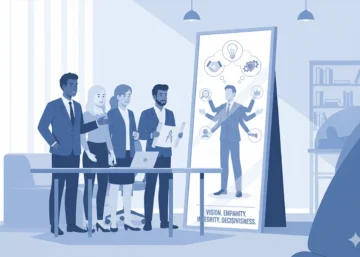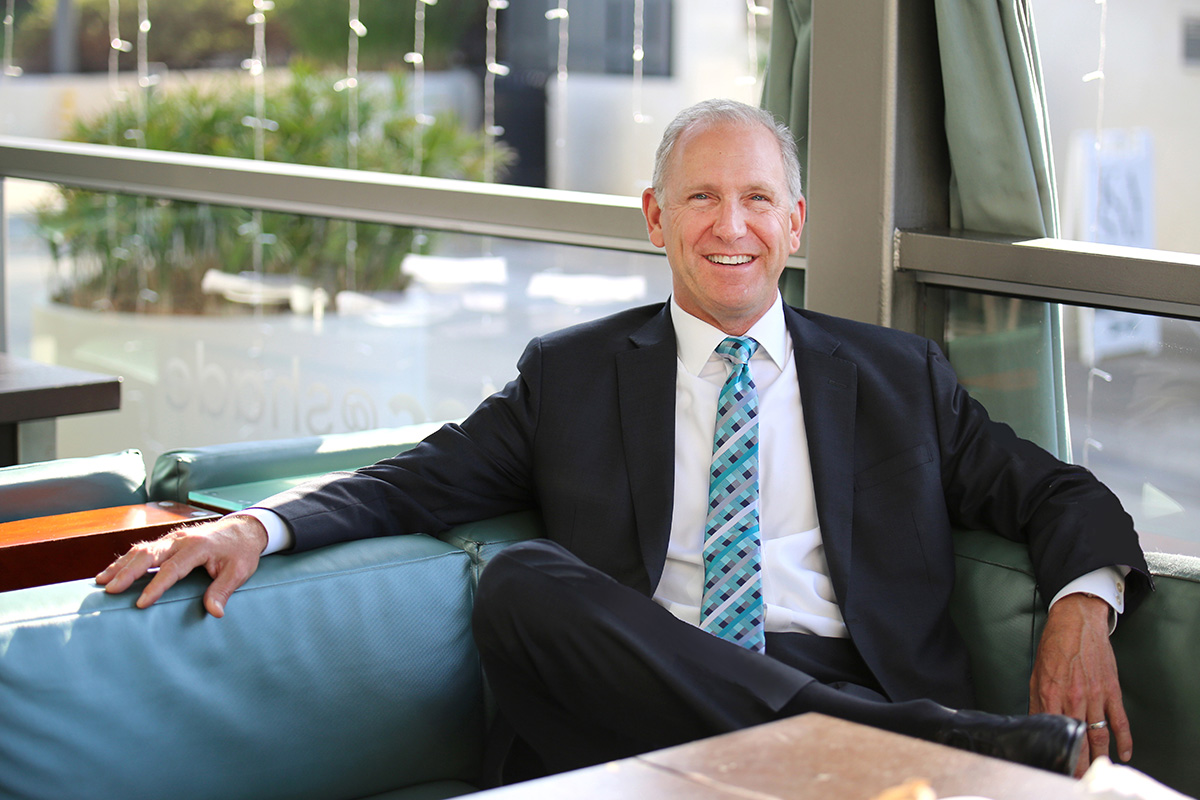So many people talk about authentic leadership these days, but what does the term really mean? Perhaps more importantly, can authentic leadership actually be learned — or is it innate? Do some people just “have it” and others not?
The reality is that authentic leadership is a combination of innate qualities and learned skills, which can often be developed effectively through the use of a coach.
The uniqueness of who you are and your unique personality belong to your innate qualities. It is impossible for you to show up as an authentic leader without having these innate qualities on display. While these qualities are critical, they are of little value in a leader who lacks the skills to bring them to the forefront day in and day out.
Authentic leadership is manifested through skills that can be learned. These skills can be practiced and masterfully expressed through your unique personality.
These authentic leadership skills are really tools that allow you to bring your authentic self to the forefront. So the process of “learning” authentic leadership — in practice — is actually a process of drawing out the authentic leader already within a person. Instead of inserting something into someone, like knowledge or a skillset, the coach’s task is to help the mentee or client summon something from within. It is through this process that you can develop into a high-performance, authentic leader.
So, how is this “drawing out” achieved?
1) Get Clear on Your Vision of Who You Are as an Authentic Leader.
Take some time alone to reflect and imagine yourself thriving and doing incredible work as an authentic leader. What does it look like? Feel like? Sound like? Who are you as that person, and how are you showing up when you imagine yourself as a successful, authentic leader? This visioning process is a crucial first step in the process. After all, we ought to know where we are going when we set out on a journey.
In this process, you will be allowing those deep aspects of your personality to come through. The deeper you dig in terms of what you’re willing to bring out, the deeper the connection other people will have with you.
2) Get a Mentor or a Coach.
It’s a challenging world out there. It’s tough to achieve any sort of transformation by ourselves, particularly the task of conjuring forth your inner authentic leader. We all have blind spots, and a coach can be a critical element in breaking through those barriers.
I’ve had the same coach for 40 years, and he constantly guides me in being more of who I am — to be more authentic and to have a deeper connection with the people in my life, both through work and in my personal life.
3) Set Goals
Set goals, and use your coach to stay accountable. Make sure that you follow through on those goals to complete them. That sets an example for others to see that you’re somebody who does what you say you’re going to do.
Having integrity — practically — can be expressed by setting goals and achieving them. This brings you credibility and generates trust with your people. They can see that you are someone they can believe in and count on.
4) Become a Coach to Someone Else.
After you have made some progress on the journey (and we aren’t ever “complete” with becoming authentic leaders), serve as a coach to the people who work with you. Support them in drawing out their inner authentic leaders and begin developing those people.
Have them get clear on their vision of themselves as authentic leaders.
Have them engage with a coach or a mentor (you or someone else in addition to or other than you.)
Support them in achieving their goals.
Guide them in becoming a coach for their teams. Because the missing piece in most organizations is having high performance at every level of the organization.
Identify Measures of Success
A critical step in developing authentic leadership is defining what success looks like for you. Without clear benchmarks, growth can feel ambiguous. Ask yourself: What specific outcomes will demonstrate that I am evolving as a leader?
Success could be improved team morale, stronger decision-making, or increased trust from colleagues. For those wondering, “Can leadership be learned?” The answer lies in tracking progress through tangible indicators. By establishing these measures, you create accountability and ensure continuous improvement in your leadership journey.
Leadership is not just about intent — it’s about taking measurable actions that lead to meaningful growth.
Ground Yourself With an Intention
Authentic leadership starts with clarity of purpose. Before engaging in any leadership development effort, it’s important to ask: Why do I want to grow as a leader?
Setting a strong intention provides direction and helps you stay aligned with your values. For those questioning, “Can leadership skills be taught?” The answer is yes, but effective leadership begins with a commitment to self-awareness and integrity.
Whether your goal is to empower your team, improve communication, or lead with empathy, grounding yourself in a clear intention keeps you focused on meaningful leadership growth.
Seek Feedback
Leadership does not exist in isolation; it thrives on interaction and reflection. One of the most effective ways to refine your leadership skills is to seek feedback from trusted colleagues, mentors, and team members. Their perspectives help identify strengths and uncover areas for growth that you may not recognize on your own.
If you’ve ever wondered, “Can leadership skills be learned?” the process of receiving and applying constructive feedback proves they can. Leadership development is an ongoing process, and being open to feedback demonstrates humility, adaptability, and a commitment to becoming a better leader.
Review and Celebrate Progress
Leadership growth requires consistency and reflection. Regularly reviewing your progress helps reinforce learning and keeps you motivated. Whether leadership development feels natural or challenging, acknowledging milestones builds confidence and momentum.
If you’ve ever wondered, “Can leadership be taught?”, celebrating progress is a reminder that leadership is a continuous journey, not a fixed trait. Small victories — like successfully handling a tough conversation or earning trust from your team — are proof that growth is happening. By recognizing achievements, you reinforce positive behaviors and create sustainable leadership habits.
Conclusion
If we all take responsibility for our authentic leadership, and the leadership abilities of the people we work with, then we embrace accountability for cultivating this leadership style down through the organization… and everyone will be so much better off.
(Note: If you found this article useful, please consider forwarding it to someone who would enjoy it. If you were forwarded it by someone else, you can sign up to receive articles like these in our newsletter each month. It’s complimentary).




